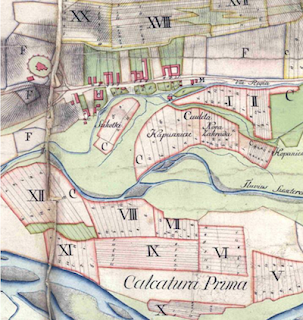Copyhold was a form of land ownership that lasted into modern times in England. Its name is simply derived from giving the landholder a copy of the land title, rather than the original deed. The legal owner was called the copyholder (even though the copy was physically held by his tenant).
Copyhold existed until the Law of Property Act of 1925, even though feudalism had disappeared by the early 1500s. As in feudalism, the tenant in a copyhold had responsibilities. These varied and could include maintenance of the land, service to the lord, or rent paid in money or goods. The tenant could have rights to natural resources such as gathering wood, or hunting on the land, and could be granted a certain number of animals allowed to graze on the common areas.
Copyhold could be passed on in two ways (of course the tenant could simply give the copy back to the lord and move away). The tenant could include the tenancy in a will, but the lord could recall the copyhold if he felt the inheritor could not fulfill the responsibilities involved. The holder, however, had opportunities to ask to "sell" it to another by arranging with the lord to return it and have it granted to another of the original holder's choosing.
There was also "Copyhold for lives." In this arrangement, the copyhold was actually granted with more than one person attached to the deed. A primary tenant would have the expected rights and duties, and upon his death it would automatically be passed on to the next in line. This created ahead of time a queue for how the land would be passed along. It was possible to change names in the succession by paying a fine to the lord, but this method made it more difficult for the original tenant to change his mind about his successor.
There were a few different systems to the west, in Ireland and Wales. Tomorrow I'll talk about gavelkind and knight-service, and then we'll move on.

No comments:
Post a Comment
Note: Only a member of this blog may post a comment.